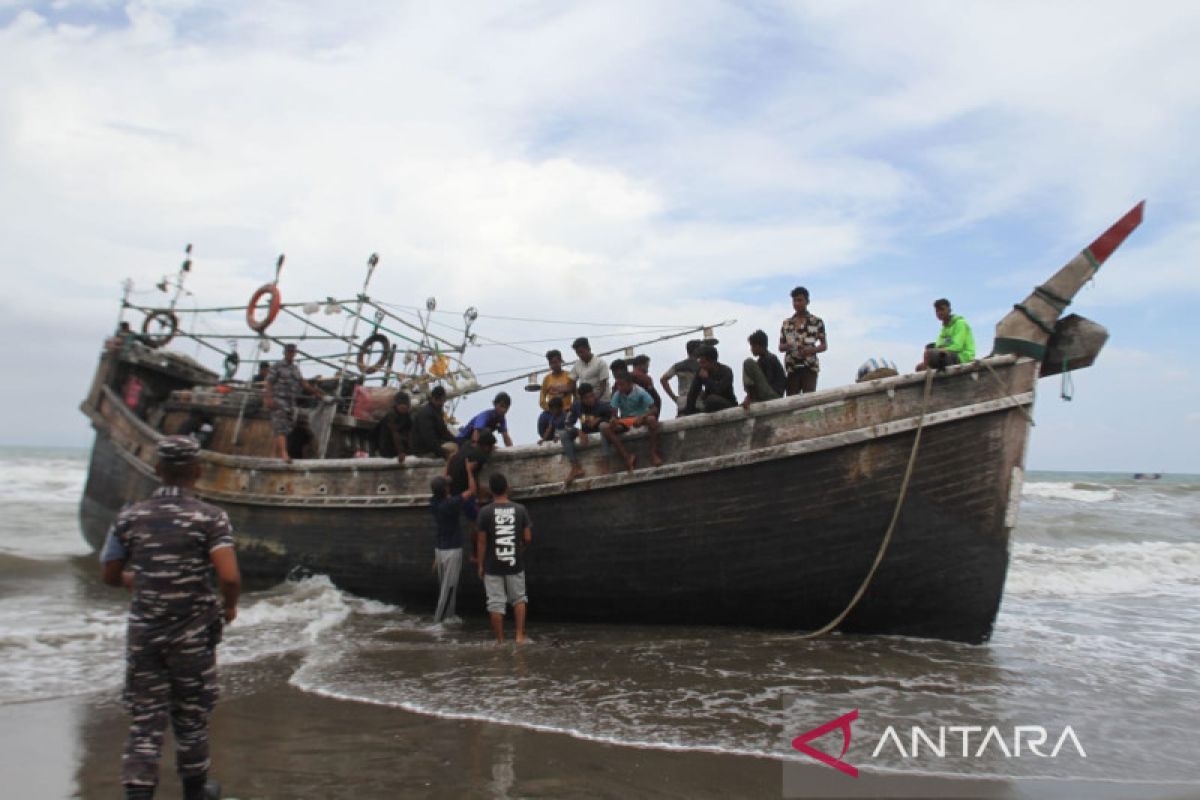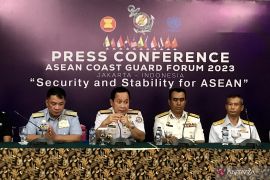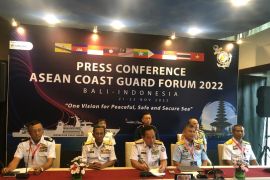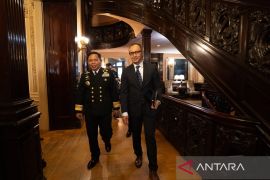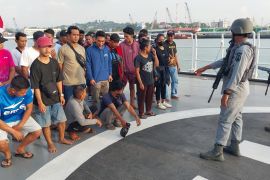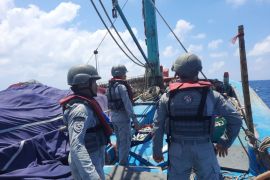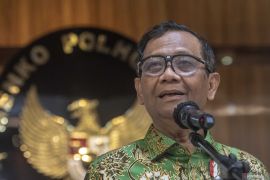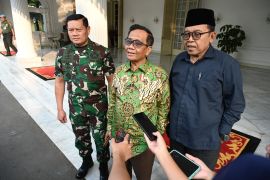All countries in Southeast Asia, except Laos, have access to the sea, making duties to maintain maritime security an obligation for the respective national governments.
Indonesia is not an exception, especially as it is the largest archipelagic country in the world, united by sea.
According to Government Regulation No. 13 of 2022, the National Maritime Security Agency (Bakamla) is the leading agency for security, safety, and legal enforcement in Indonesia’s maritime jurisdiction.
To bolster regional cooperation in maritime security, Bakamla is chairing the 2023 ASEAN Coast Guard Forum (ACF) in Jakarta on June 6-9. The forum takes place against the backdrop of Indonesia's ASEAN Chairmanship this year.
The forum takes place to discuss cooperation on addressing challenges shared by ASEAN countries in maintaining maritime security, such as illegal fishing, violation of territorial boundaries, and the smuggling of goods.
"The ASEAN Coast Guard Forum aims to establish cooperation to maintain security and stability in ASEAN as well as develop a communication network," Head of Bakamla, Vice Admiral Aan Kurnia, stated at a press conference after opening the forum on Wednesday (June 7).
He noted that the forum is seeking to encourage information sharing, coordination, and joint training among its member countries. The forum also aims to build trust among coastguards in the Southeast Asian region.
Though nations must respect each other's sovereignty, territorial boundaries, and laws, international cooperation is still essential to protect the waters of each country and region, the vice admiral emphasized.
The 2023 ASEAN Coast Guard Forum is attended by representatives from six ASEAN member countries: Malaysia, Thailand, Singapore, the Philippines, Brunei Darussalam, and Indonesia, chairing the forum for the first time.
Meanwhile, representatives of the coastguards of Vietnam, Cambodia, and Myanmar are not attending the 2023 ASEAN Coast Guard Forum, as they are dealing with several more pressing domestic issues.
In maintaining maritime security and addressing transnational crimes and challenges in the Indonesian and Southeast Asian seas, Bakamla seeks to collaborate with domestic and international partners, primarily with ASEAN bloc members.
Kurnia said his agency is committed to supporting the Indonesian Police-led Anti-Human Trafficking Task Force, recently established on June 5, to follow up on President Joko Widodo’s (Jokowi’s) instruction to eradicate human trafficking and its perpetrators.
Kurnia noted that perpetrators of the cross-border crime often exploited the vast Southeast Asian maritime area for their criminal activities.
“On the Bakamla side, we will monitor the sea, as it has been one of the government’s priorities. Why is it? It is because, almost every day, there are human trafficking victims dying. They were sent overseas but returned (to Indonesia) lifeless,” he stated.
According to the Indonesian Migrant Workers Protection Agency (BP2MI), 1,990 Indonesian human trafficking victims had died in the last three years.
During the same period, the agency also handled the deportation of 94 thousand Indonesian workers overseas, of which 90 percent were suspected to have departed illegally.
He affirmed that Bakamla will enhance its monitoring of maritime movements and activities in the Indonesian maritime territories to prevent human trafficking victims, often being disguised as legal migrant workers, from being brought overseas.
Moreover, Bakamla has agreed to collaborate with the Malaysian Maritime Enforcement Agency (APMM) in handling Rohingya refugees, who fled from Myanmar to the neighbouring Southeast Asian countries, including Indonesia and Malaysia.
The Bakamla head said that the issue of Rohingya refugees remains a common concern between Indonesia and Malaysia.
The exodus of the Rohingya people, a Muslim ethnic group from Myanmar, has continued since 2017 when the Myanmar military began attacking the settlements of the Rohingya community.
The United Nations High Commissioner for Refugees (UNHCR) recorded more than 900 thousand Rohingya refugees in Cox’s Bazar, Bangladesh, as of 2022.
Rohingya refugees often embark on risky journeys on the sea to seek asylum in other countries, such as Australia and New Zealand. However, they often become stranded in Indonesia and Malaysia.
Kurnia noted that his side continues to monitor the issue and coordinate with APMM and other stakeholders to deal with the refugees.
“Complying with humanitarian principles, if they are near the coast, or their boat is damaged, then certainly, it is our obligation to help," he remarked.
On the same occasion, Acting Director General of the APMM Vice Admiral Datuk Saiful Lizan bin Ibrahim said he is optimistic that the issue would be solved through cooperation with the Indonesian counterpart.
He said that his side and Bakamla had once handled several refugees, who had sailed from Sumatra straight to northern Malaysia.
“I am certain that good relations between Indonesia’s Bakamla and Malaysia’s APMM can ensure that this issue will be able to be resolved together. God willing," the APMM official remarked.
Related news: Indonesia, Malaysia agree to jointly address Rohingya refugee issue
Related news: Police support expands crackdown against human traffickers: BP2MI
Editor: Rahmad Nasution
Copyright © ANTARA 2023
